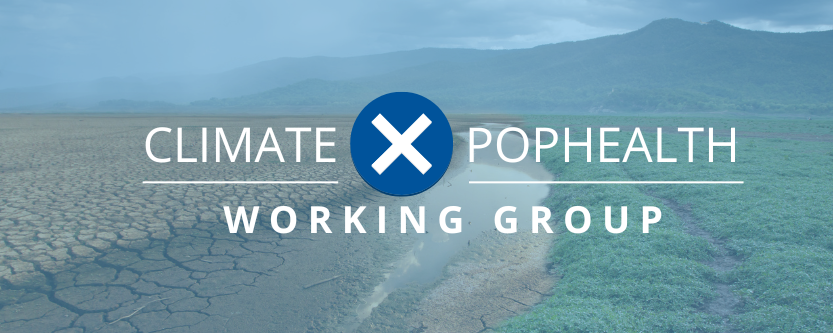
The Climate X PopHealth Working Group develops and implements effective, evidence-based solutions to mitigate the impacts of climate change on human health. The group promotes population health resilience by supporting an interdisciplinary network of collaborators across the Department of Population Health Sciences (DPHS), Duke University, and the community at large.

DPHS is uniquely positioned to address the intersection between climate change and health. The Climate X PopHealth Working Group aims to facilitate collaboration among university, community, and institutional stakeholders and partners. It leverages existing resources and expertise to enhance climate and health research initiatives, as well as education programs for students, professionals, and community members. Additionally, the working group will identify and provide access to climate-related resources and datasets to support faculty development, and assist students and faculty in securing funding for climate-related research and programs.
Duke Climate Commitment
The Duke Climate Commitment is a university-wide, impact-oriented initiative to address the climate crisis by creating sustainable and equitable solutions that place society on the path toward a resilient, flourishing, carbon-neutral world. Through education, research, external engagement and campus operations, the Duke Climate Commitment seeks to imagine, design and implement a sustainable future for all.
Upcoming Events
Recent Highlights
Socioeconomic Disparities in NC Radon Testing
Journal of Environmental Radioactivity Publication
A recent study led by DPHS’ Tomi Akinyemiju, PhD, Claire Meernik, PhD, MPH, et al., revealed that the majority of census tracts had low radon levels, with affluent neighborhoods showing higher radon testing rates. Socioeconomic disadvantages were linked to reduced testing, highlighting the need for interventions to balance testing rates across socio-economic divides.
Spotlight on Climate Change and Health at Duke
Duke SOM Magnify Article
Health experts at Duke University School of Medicine are scrutinizing the myriad ways in which shifting environmental conditions, from sweltering temperatures to severe storms, shape our well-being.